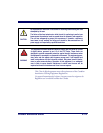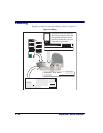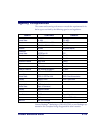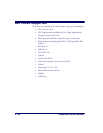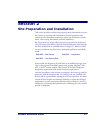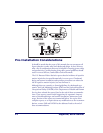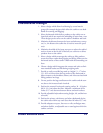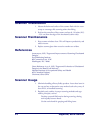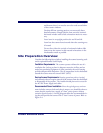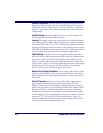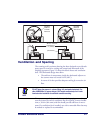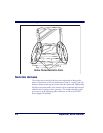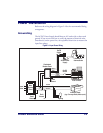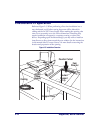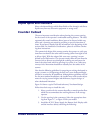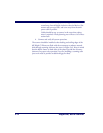
Product Reference Guide 2-5
Since the scanner reads labels on all four sides plus the top
and bottom, there is no need to turn a bar code toward either
of the scanner windows.
Develop efficient scanning motions, not necessarily faster
hand movements. Simply slide the item across the scanner’s
horizontal window with as little orientation motion as neces-
sary.
Leave items in an upright position; do not lift and tilt.
Learn how the scanner functions and where the scanning area
is located.
Do not favor either the vertical or horizontal window; slide
items across the scanner in their natural orientations on the
checkstand as much as possible.
Site Preparation Overview
Consider the following factors before installing the scanner/scanning-scale
and its optional Remote Scale Display.
Ventilation Requirements. The scanner operates without the use of a
ventilation fan. As long as there is adequate convective air flow and no
major heat producing equipment in close proximity, the unit’s housing
provides adequate heat dissipation. The air temperature in the checkstand
around the scanner must not exceed 104°F (40°C).
Service Access Requirements. Routine operations such as ‘zeroing’
and calibration do not require removal of the scanner from the checkstand
or disassembly of the product. The installer should plan service access for
the AC/DC Power Supply and cables.
Recommended Power Installation. Since the typical grocery environ-
ment includes conveyor belts and electric motors, care should be taken to
ensure that the scanner has a supply of “clean” power (power without
excessive electrical noise). A wiring diagram shows the recommended wir-
ing that will provide the scanner with a “clean” source of power. Refer to
Figure 2-4.



